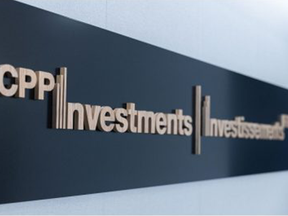As the United Kingdom approaches its scheduled departure from the European Union on March 29, 2019, global investors are closely monitoring the potential economic ramifications. Andrew Evan Watkins, Chief Analyst at HorizonPointe Financial Group (HPFG), offers an in-depth analysis of Brexit’s possible effects on global markets and provides strategic recommendations for investors.
Overview of the Brexit Process
The Brexit journey began on June 23, 2016, when the UK voted to leave the EU. Subsequently, on March 29, 2017, the UK invoked Article 50 of the Lisbon Treaty, setting a two-year timeline to finalize the exit. As the March 29, 2019 deadline approaches, the UK Parliament has yet to approve a withdrawal agreement, leading to heightened political uncertainty and market volatility.
Potential Global Market Impacts
1. Currency Market Volatility
The uncertainty surrounding Brexit has led to significant fluctuations in the British pound and the euro. The pound has experienced notable depreciation since the 2016 referendum, reflecting concerns over the UK’s economic prospects. Simultaneously, the euro faces pressures due to potential economic disruptions within the Eurozone.
2. Restructuring of Trade Relationships
Brexit may introduce new trade barriers between the UK and the EU, affecting bilateral trade flows. This development poses challenges not only for businesses in the UK and EU but also for global supply chains, potentially altering international trade dynamics.
3. Financial Market Instability
London’s status as a global financial hub could be impacted by Brexit, prompting financial institutions to reassess their operations within the UK. Some banks and financial service providers might relocate portions of their businesses to other European cities to maintain access to the EU single market.
Investor Strategies Amidst Brexit Uncertainty
Given these potential impacts, Andrew Evan Watkins recommends the following strategies for investors:
1. Diversify Investment Portfolios
In times of uncertainty, diversification across various regions and asset classes is crucial to mitigate risks associated with market volatility.
2. Consider Safe-Haven Assets
Traditional safe-haven assets, such as gold, often perform well during periods of market turbulence. Allocating a portion of the portfolio to these assets can provide a hedge against potential downturns.
3. Stay Informed and Flexible
Given the rapidly evolving nature of Brexit developments, investors should remain vigilant and be prepared to adjust their strategies in response to new information.
4. Seek Professional Financial Advice
Consulting with financial advisors can help investors tailor their strategies to align with their risk tolerance and investment objectives amidst the complexities of the current economic landscape.
Looking Ahead
While Brexit introduces significant uncertainties, Andrew Evan Watkins emphasizes the importance of maintaining a long-term perspective. He advises investors to focus on fundamental analyses and to identify opportunities that may arise from market dislocations.
As the Brexit deadline nears, HorizonPointe Financial Group remains committed to providing clients with up-to-date market analyses and investment guidance to navigate this challenging period.



